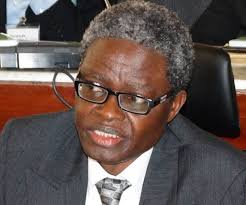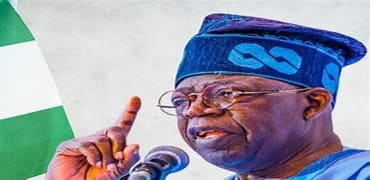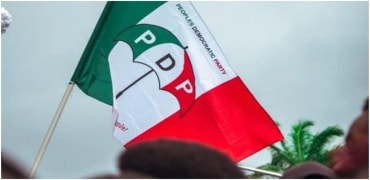Visa Braggadocio and the Illusion of Power: Nigeria’s Strategic Autonomy as the Answer
Visa Braggadocio and the Illusion of Power: Nigeria’s Strategic Autonomy as the Answer
Visa policies are often wielded not just as tools of border management, but as subtle instruments of international diplomacy, soft coercion, and, increasingly, geopolitical posturing. The recent imposition of visa restrictions on Nigerian nationals by the United States and the United Arab Emirates, under the guise of immigration and security management, reflects a deeper undercurrent of unilateralism and diplomatic brinkmanship. In response, Nigeria must move beyond diplomatic pleading and advance a long-overdue agenda of strategic autonomy—a sovereign, deliberate recalibration of its global standing rooted in reciprocity, dignity, and national interest.
Sovereignty and the Passport Politics
Every sovereign state possesses the absolute right to regulate the entry and exit of individuals across its borders. A passport, while a national symbol of citizenship, is in essence a diplomatic recommendation—an official assurance of good standing from one sovereign to another. Yet, the visa-granting authority retains full discretion, often subjecting applicants to layers of scrutiny that go well beyond the passport’s testimony. This is standard practice.
However, the practice is increasingly politicized.
Visa denial—whether on the basis of suspicion, bureaucratic opacity, or unstated foreign policy objectives—has morphed into a subtle form of exclusionism. Recent U.S. policies, especially under President Donald Trump’s return to office, reflect not only a tightening of immigration controls but also a broader retreat into isolationism and neo-protectionist ideology. The aggressive denaturalization agenda targeting naturalized U.S. citizens, many of them Africans, is a glaring contradiction of America's long-proclaimed values of openness and democratic inclusion.
Nigeria as a Diplomatic Target
The recent U.S. visa restrictions on Nigerians—reducing most visa categories to single entry and three-month validity—are not administrative adjustments. They are symbolic moves, likely tied to broader strategic disagreements. Among these is Nigeria’s refusal to accept Venezuelan deportees from U.S. prisons—a condition reportedly linked to recent U.S.-Africa migration talks in Washington.
The response from Nigeria’s Foreign Minister, Ambassador Yusuf Tuggar, was rightly assertive. Nigeria, with over 230 million citizens, is under no obligation to accept non-citizens deported under murky arrangements. It is not, and must not be, a dumping ground for foreign penitentiary overflow.
This incident echoes earlier exclusions—most notably Nigeria’s omission from the July 9, 2025, U.S.-Africa Summit attended by five handpicked African leaders. Reports suggest the summit, veiled as a discussion on security and development, was a veiled quid pro quo session—participation in exchange for accepting migrants. That Nigeria wasn’t present was a blessing in disguise.
Leaders present were reportedly subjected to embarrassing moments, including demeaning remarks and condescending interviews. The optics alone would have undermined Nigeria’s dignity. Fortunately, Nigeria’s absence spared it from being complicit in what looked more like a televised diplomacy of humiliation than genuine partnership.
Strategic Autonomy as Response, Not Retaliation
Nigeria’s strength lies not in reciprocal exclusion or rhetorical escalation. Its power lies in a long-term, structured pursuit of strategic autonomy—a doctrine that prioritizes:
Diplomatic decency: Engagements must be mutual and dignified.
Domestic reform: Reducing the desperation that pushes citizens to flee.
Diaspora integration: Harnessing the economic, intellectual, and political capital of Nigerians abroad.
Digital innovation: E-visa systems like Nigeria’s are a start—but they must be streamlined, reciprocal, and secure.
Visa politics should not be a tool of shaming or coercion. Rather, Nigeria must redefine the rules of engagement, ensuring that all nations—irrespective of power status—treat each other with mutual respect.
The Broader Context: BRICS, Refugees, and Global Power Play
Nigeria’s rising profile in international relations has not gone unnoticed. Its growing alignment with BRICS, its rejection of AFRICOM’s location within its territory, and its emphasis on multipolar diplomacy position it as a threat—not militarily, but ideologically—to Western hegemonic preferences.
When former President Joe Biden warned African nations of the consequences of voting against U.S. interests at the UN over the Russia-Ukraine war, the message was clear: independence will come at a cost.
But this is precisely why strategic autonomy is not optional for Nigeria—it is existential.
Trump’s America and the Hypocrisy of Isolationism
Donald Trump’s foreign policy has always flirted with contradiction. While preaching national self-reliance, it often seeks to undermine others who attempt to do the same. It glorifies strength but is intolerant of independent strength elsewhere.
Trump's revival of the Monroe Doctrine, packaged today as "America First" and codified under MAGA nationalism, runs counter to the spirit of global interdependence. Yet, it is being aggressively exported to Africa through immigration ultimatums, diplomatic snubs, and, increasingly, economic threats.
What Nigeria Must Do Next
Rather than beg for readmission into a hierarchy that sees it as subordinate, Nigeria should:
Recalibrate bilateral visa agreements with all countries, using reciprocity as baseline policy.
Establish a migration diplomacy task force to monitor and respond to foreign immigration policies that affect Nigerians.
Invest in homegrown infrastructure and job creation to reduce push factors for emigration.
Amplify its voice through BRICS and AU platforms, advocating for an equitable global order.
Conclusion: Dignity in Diplomacy
Nigeria’s refusal to accept prisoners or refugees under coercive arrangements is not petulance; it is a principled stance rooted in sovereignty and dignity. Visa politics may continue to reflect global hierarchies, but Nigeria must not play into its own marginalization.
The braggadocio of visa restrictions is hollow when confronted with a nation determined to define its path. Strategic autonomy, not subservience, must be the new grammar of Nigeria’s diplomacy.
By Haruna Yakubu Haruna



















